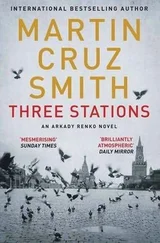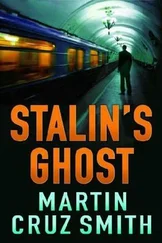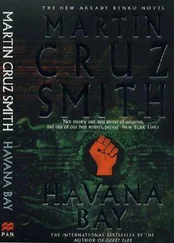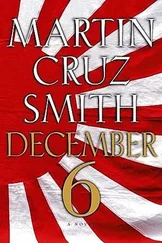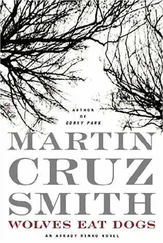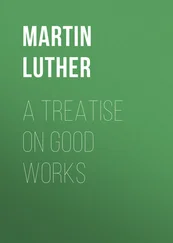Martin Smith - Stallion Gate
Здесь есть возможность читать онлайн «Martin Smith - Stallion Gate» весь текст электронной книги совершенно бесплатно (целиком полную версию без сокращений). В некоторых случаях можно слушать аудио, скачать через торрент в формате fb2 и присутствует краткое содержание. Жанр: Триллер, на английском языке. Описание произведения, (предисловие) а так же отзывы посетителей доступны на портале библиотеки ЛибКат.
- Название:Stallion Gate
- Автор:
- Жанр:
- Год:неизвестен
- ISBN:нет данных
- Рейтинг книги:4 / 5. Голосов: 1
-
Избранное:Добавить в избранное
- Отзывы:
-
Ваша оценка:
- 80
- 1
- 2
- 3
- 4
- 5
Stallion Gate: краткое содержание, описание и аннотация
Предлагаем к чтению аннотацию, описание, краткое содержание или предисловие (зависит от того, что написал сам автор книги «Stallion Gate»). Если вы не нашли необходимую информацию о книге — напишите в комментариях, мы постараемся отыскать её.
Stallion Gate — читать онлайн бесплатно полную книгу (весь текст) целиком
Ниже представлен текст книги, разбитый по страницам. Система сохранения места последней прочитанной страницы, позволяет с удобством читать онлайн бесплатно книгу «Stallion Gate», без необходимости каждый раз заново искать на чём Вы остановились. Поставьте закладку, и сможете в любой момент перейти на страницу, на которой закончили чтение.
Интервал:
Закладка:
"But they don't. We do and we have to make the ethical choice. Joe, I didn't leave Amarillo to become a physicist to atomize a hundred thousand human beings. When Oppy came to Columbia and recruited me, it was to make a bomb so Hitler wouldn't use his. That's all I signed up for, that's all anyone signed up for."
"Except the Army, Navy and Marines."
"The ethical choice -"
"It's a hell of a luxury. It's not one that enlisted men have."
"Well, as a civilian -"
"You're a civilian because Oppy got you a draft deferment, so you could come here and build a bomb. I'm your friend and I'm happy for you. So build the bomb and end the war. Boy, Captain Augustino would love this conversation. Augustino would haul you off the Hill in a car trunk."
"I'm prepared to suffer for my decision."
"Suffer for your decision? There are men dying on shitty piles of sand all over the Pacific. There are men stuffed in the holds of ships heading to Japan for the invasion. I think they're going to suffer for your decision. Who else have you told?"
"Just me," said Anna.
"You helped Harvey come to his decision?"
"I hope so," she said.
"Well, there ought to be room in Augustino's car trunk for both of you. Good luck," Joe said and heaved himself out of the water. Quickly, he picked up his uniform, belt and shoes. This wasn't the idyllic night in the hot springs he'd had in mind, not at all.
Harvey stood as tall and defiant in the water as he could get.
"Are you going to report us?"
"No, but I'll let you geniuses find your own way down."
"Stay," Harvey begged.
"Yes, tell us more fascinating Indian experiences," Anna Weiss said. "Lift more cars. Play more waltzes."
On the road to the Hill, deer dashed in front of Joe's headlights. They were mule deer, five or six of them. He braked and skidded to the edge before he stopped. His lights picked out the scribbling flight of moths, the dart of a nightjar, and then faded over the long drop to the canyon floor.
The world was full of victims, all too eager to take you with them.
11
Light lay in the blue shutters and between the threshold and the door. The house had two rooms, a kitchen with a wood-burning stove and a larger room for everything else. The adobe walls were whitewashed with kaolin. There were a cot, maple bureau, enamelled table and chairs, dusty pails, an open cardboard box full of pots, and a corner fireplace that was black and empty. On the walls were a crucifix, the Virgin, Saints Michael and Christopher (wading through water, the Christ child on his shoulders), photos of Rudy in his confirmation suit, dressed in feathers and bells for a dance, in his uniform and garrison cap.
Joe had heard that Rudy was dead, that the B-17s at Clark Field were loaded with fuel and lined up in rows when the Japs came over. Each bomber blew up the next one, and the last B-17, trying to take off, rolled over a gun battery before exploding. Not that bodies were found.
He sat on the hard bed and smoked, using a pail as an ashtray. He noticed how he didn't look up and he knew it was out of fear. Fear that Dolores would come in from the kitchen with a dishcloth in her hand. Or that Rudy would be standing at the foot of the bed, whining, wanting to box. It was the first time in years that Joe had been in the house and it was just as bad as he'd thought it would be. Smaller. There was nothing so claustrophobic as memory.
Rudy could still be alive. Hiding out in the jungle. In a prison camp. In Japan.
Of course, Fuchs was right. If the bomb worked, all the Rudy Pinas in the world wouldn't measure up to a single Oppy, Harvey or Fuchs.
Goddamn Harvey and his need for approval. Why tell a sergeant that you're leaving the war? Joe hadn't gone back to the Hill. He'd picked up a couple of bottles at a bar and went out target shooting, looking for unlucky coyotes. He figured he'd wake up in a motel in Esperanza, the Spanish town across the river from Santiago. Instead, he woke up in Santiago, in this house.
At least he'd made up his mind. He was going to tell Augustino. The captain wanted something on Anna Weiss, and Joe would give it to him.
The house groaned, or maybe it was the sound of himself. The kiva in the ground had nothing on this. He dug in his pocket for another cigarette.
The door swung open. Dull, blinding sun filled the room and in the doorway stood a phantom.
"Rudy?"
"Who?" Joe shielded his eyes.
"Mrs Quist. Joe? That's you?" The wraith stepped in and became a tiny lady in a white Lana Turner suit, turban and sunglasses. "You're the last person I thought I'd see here."
"You and me, both." He could see how wrinkled his khakis were, the butts on the floor.
"Pots, Joe. This is always my first stop."
"I'll get out of your way." He heaved himself off the bed. His shoes were still on. As soon as he put the carton of pots on the table for Mrs Quist he stumbled outside to the pump. Her Hudson was parked alongside the jeep.
Morning was come and gone. Around Santiago rose thin columns of black smoke because the noon stillness was a good time for firing pots. In the back yard across the road Sophie Reyes tended a fire of pine, cedar, bits of two-by-four piled around a milk crate filled with pots. Sophie plucked up a piece of wood that seemed to be nothing but flame and put it where the fire seemed sparse. When an ember rolled free, she swept it back into the fire with a brush of yucca stalks. A soot-blackened tin sheet blocked any unwanted breeze. Everything she did was like Dolores. They had been sisters, and Sophie had the same helmet of gray hair, wore the same traditional, one-shoulder dress, smudged apron, Montgomery-Ward shoes.
Ben Reyes came out through a screen door into the yard. His braids hung round a puckered, leathery face. He wore no shirt, only a vest, kilt, trousers and moccasins. Usually his contribution to Sophie's work was to sit in a chair and sort feathers. Today he was head to head with another doddering ancient with a walking stick.
Joe pumped water into his hands. Rinsed his mouth. Combed his hair with his fingers. With the sun directly overhead, the one-storey adobe houses appeared waist-high. The ladders leaning against the roof lines were bleached, the wood twisted; the ladders looked balanced on their own shadows. The pueblo was a maze of dirt roads and alleys, outdoor ovens, corrals and open porches, homes distinguished one from the other by a blue frame on these windows, a green frame on those. The Pena and Reyes houses were at the edge of the pueblo, but an alley ran directly to the plaza and he could see the cottonwood with its tyre swings. He watched two boys run across the plaza, climb on to a roof, gather their courage in a breath and jump to a lower roof, and he remembered making the same heady leap, and the stirring of husks and chilli dust when he landed.
Santiago. Never mind that he'd spent his adult life in New York and toured the entire country, East Coast, West Coast, Mexico and France. Before the war he'd gone to Paris with Big Chief Russell Moore, a trombone player, a 410 lb Pima from Komatke, Arizona. In the Palais des Sports, Joe knocked the French heavyweight champion three times through the ropes and still lost the decision because the French kept throwing their champion back in like an undersized fish. Big Chief had this trombone at the Palais and every time the crowd threw their fighter back, he played a slow, rising slide. That night, Joe and Big Chief drank absinthe from brandy snifters in a cafe unworried about war because the French had a bigger army than the Germans.
That was six years ago. Now, he rolled like a stone back to where he'd started. The funny thing was that the war had freed most of the men in Santiago, drafted them out of their bean fields, and sent back the one man who'd got away. The mills of the Gods were slow and all fucked up.
Читать дальшеИнтервал:
Закладка:
Похожие книги на «Stallion Gate»
Представляем Вашему вниманию похожие книги на «Stallion Gate» списком для выбора. Мы отобрали схожую по названию и смыслу литературу в надежде предоставить читателям больше вариантов отыскать новые, интересные, ещё непрочитанные произведения.
Обсуждение, отзывы о книге «Stallion Gate» и просто собственные мнения читателей. Оставьте ваши комментарии, напишите, что Вы думаете о произведении, его смысле или главных героях. Укажите что конкретно понравилось, а что нет, и почему Вы так считаете.


